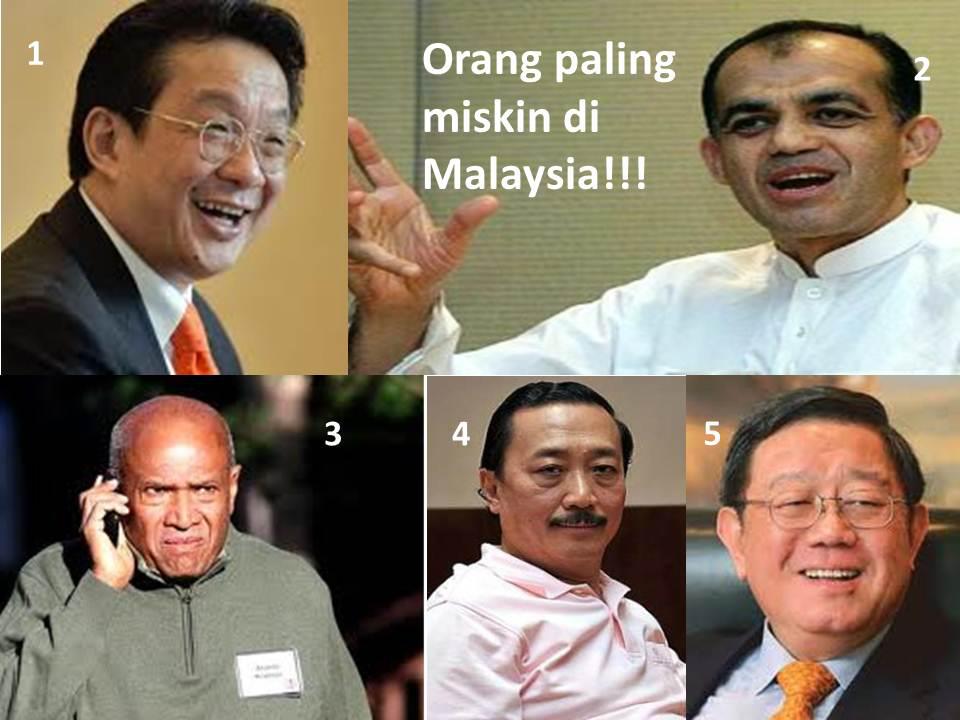What New Economic Model (NEM)?
March 02, 2013
MARCH 2 — When the New Economic
Model (NEM) was first unveiled by the government, Prime Minister Datuk Seri
Najib Razak promised that it would be market-friendly, merit-based and
transparent. Three years later, most business people have discovered that it is
the same old model in new packaging — still not market-friendly, not
merit-based and opaque. It is turning out to be little changed from the
corrupt-ridden, crony-dominated, patronage-driven, racist-oriented system of
doing business that came with Tun Dr Mahathir Mohamad’s extension of the New
Economic Policy (NEP).
Three nights ago I had dinner with
my brother, a commodity trader in Canada. He was on his annual Chinese New Year
trip back, when he combines a family reunion with meetings with business
clients. His line of trade is pork, which Malaysia imports at the considerable
quantity of over 15,000 tonnes annually from around the world.
When I asked him how his business
was in Malaysia, he said that it was down. He had finished a meeting with his
main client and returned disappointed as the client had wanted to substantially
reduce his purchases.
I was surprised by this disclosure
since his client is a major meat importer, and from all accounts, the
importation business in pork is booming according to trade data.
My brother explained that this slash
in imports was not because of reduced demand or the client's lack of business
acumen. According to my brother, he heard the common refrain “cronyism,
corruption and rent-seeking at the highest level”. He offered to introduce me
to his client so I could find out the real situation.
Politicians make profit from
semi-monopoly
My informant's storyline and details
(he asked that his identity be concealed to protect his business) is
depressingly similar to that of other long-established practices of the NEP
where the right to importation and the issue of licences has become a gold mine
for the politicians, bureaucrats and the coalition of distributors who control
them.
It is a tale of how pork importation
has degenerated from a freer market with few entry barriers to a semi-monopoly
controlled by a business-political mafia and which involves the highest level
of leadership in the ministry and agency responsible for the welfare of its
constituency and the consumers.
According to my informant,
complaints made to the relevant authorities, including the Prime Minister’s
Department and MACC on the issue of import licences, quotas and the tight
control by the cartel, the Malaysian Association of Pork Importers (MAOPI),
fell on deaf years. Apparently the MAOPI, under the leadership of two Datuks,
is closely linked to the political and bureaucratic wielders of power.
So powerful is this new cartel and
the hidden hands that support it that even the MCA — for whom the issue of
unfair pork importation licences and quotas is critical to the party’s
political support — has been powerless to help my informant and his colleagues.
Incidentally, the MCA president's
son, who holds the position of deputy minister of agriculture, is either
impotent or refuses not to antagonise the more powerful vested interests
involved in the operation of the scam. This is giving him the benefit of the
doubt that the MCA and the deputy minister are themselves not beneficiaries of
the scam.
Need to now out-bribe the
competitors
Besides the award of licences and
quotas to these mostly newcomer cronies that discriminate against
long-established importers, a new consortium was formed to levy a new surcharge
of 50 sen for each kilogram of pork imported. The surcharge apparently goes
directly towards the consortium which he was reluctant to discuss, although he
eventually provided me its name.
If 20,000 tonnes of pork are being
imported into the country this year, the consortium skims off RM10 million by
passing on the surcharge to the intermediaries and final consumers.
The above example is only the tip of
the iceberg of the rampant rent-seeking and cartelisation occurring not only in
the country's import sector but in other economic sectors regulated through
licences, permits, quotas and other regulatory means.
Data on corruption shows a rising
trend. Malaysia’s overall scores in Transparency International’s Corruption
Perception Index have deteriorated for three consecutive years.
More worryingly, businesses have to
indulge in bribery to outbid their competitors and stay ahead. A recent survey
showed that half of the corporate executives surveyed in Malaysia by global
corruption watchdog Transparency International believe that competitors had
secured business deals through bribery and presumably by having to “out-bribe”
competitors.
NEM takes the same path as NEP
They
need all the mega projects because they are the poorest in Malaysia.
From pork consumed by non-Muslims to
the provision of pharmaceuticals products, rice and other food items vital for
all Malaysians, from basic supplies to luxury goods, this problem is the norm
in the nation’s business life nurtured under Mahathir’s NEP and now nourished
by Najib’s NEM.
No business person is immune from
the big and little “Napoleons” who are in cahoots with their business cronies,
whether new entrants, established businesses, or small, medium or big
enterprises.
As the case is with my informant,
those who refuse to play ball or are unwilling to share their profits or those
without political or bureaucratic patronage or immunity stand to lose their
businesses competitiveness and livelihoods. – text duplicated from email being circulated by Malaysians


